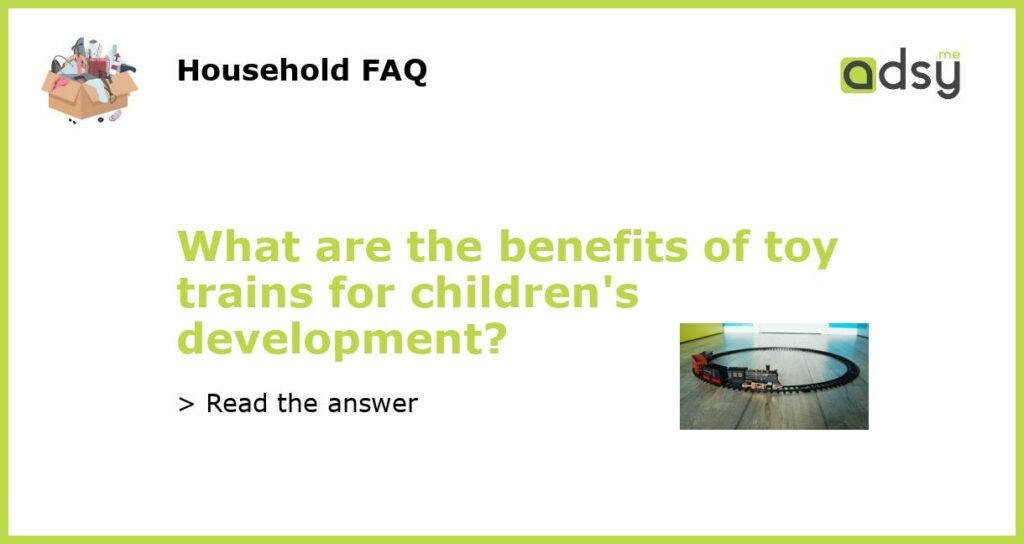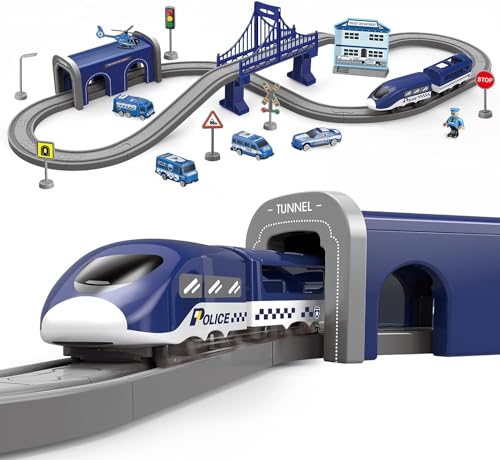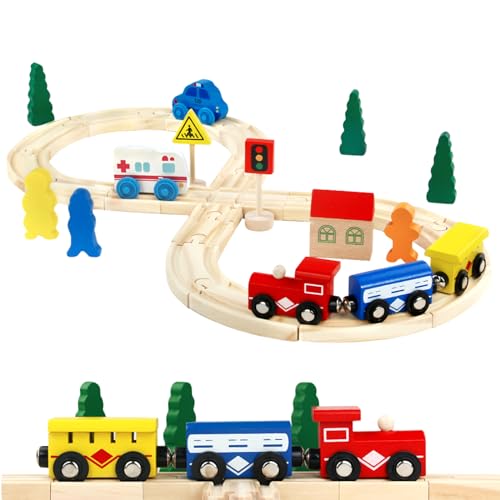Cognitive Development
Playing with toy trains can greatly enhance a child’s cognitive development. As they play, children engage in imaginative play and problem-solving activities. They need to figure out how to make the train move, how to build tracks, and how to navigate obstacles. This helps develop their critical thinking and problem-solving skills. Additionally, playing with trains also introduces children to concepts like cause and effect, spatial awareness, and understanding of basic physics principles.
Creativity and Imagination
Toy trains provide children with a platform to exercise their creativity and imagination. Whether they are constructing elaborate train tracks, creating stories for their trains, or pretending to be the engineer driving the train, children have the opportunity to create their own world and scenarios. This imaginative play fosters creativity, helps in developing storytelling skills, and allows children to explore their interests and passions.
Language and Communication Skills
Playing with toy trains can also contribute to the development of language and communication skills in children. As they play, children often engage in conversation with themselves or with others, describing what they are doing, making sound effects, and role-playing different scenarios. This helps in developing their vocabulary, improving their articulation skills, and enhancing their ability to express themselves effectively.
Fine Motor Skills and Hand-Eye Coordination
Manipulating toy trains and their accessories requires the use of fine motor skills and hand-eye coordination. Children need to grasp and hold the trains, connect the tracks, and maneuver the trains along the tracks. This refined control of their hands and fingers helps strengthen their fine motor skills and improves their hand-eye coordination, both of which are important for tasks like writing, using utensils, and other everyday activities.
Social Skills and Emotional Development
Playing with toy trains can also contribute to the development of social skills and emotional intelligence in children. When children play with trains together, they learn to take turns, negotiate, and cooperate with one another. They learn to share resources, communicate their ideas, and work together towards a common goal. This type of play fosters empathy, helps children develop sustainable relationships, and teaches them vital social skills that they will need throughout their lives.






